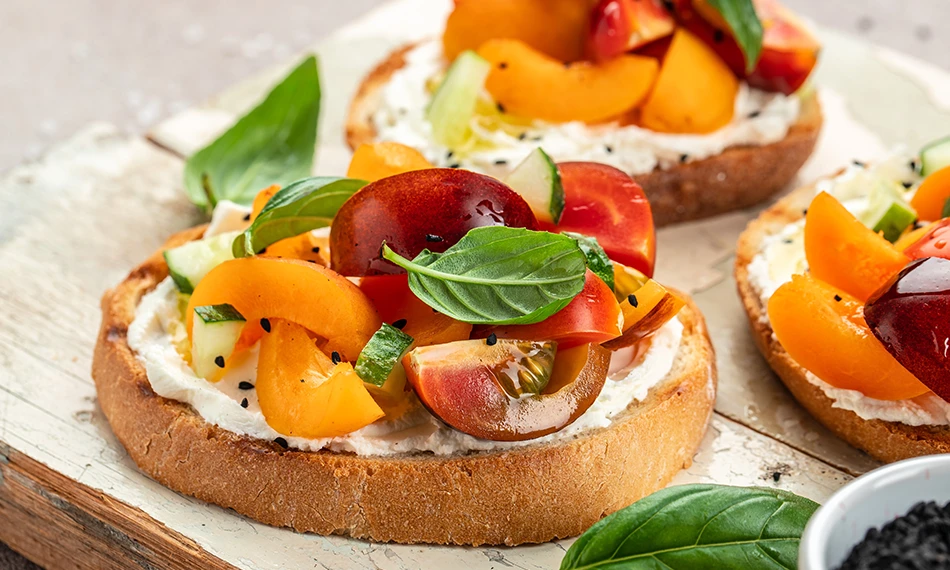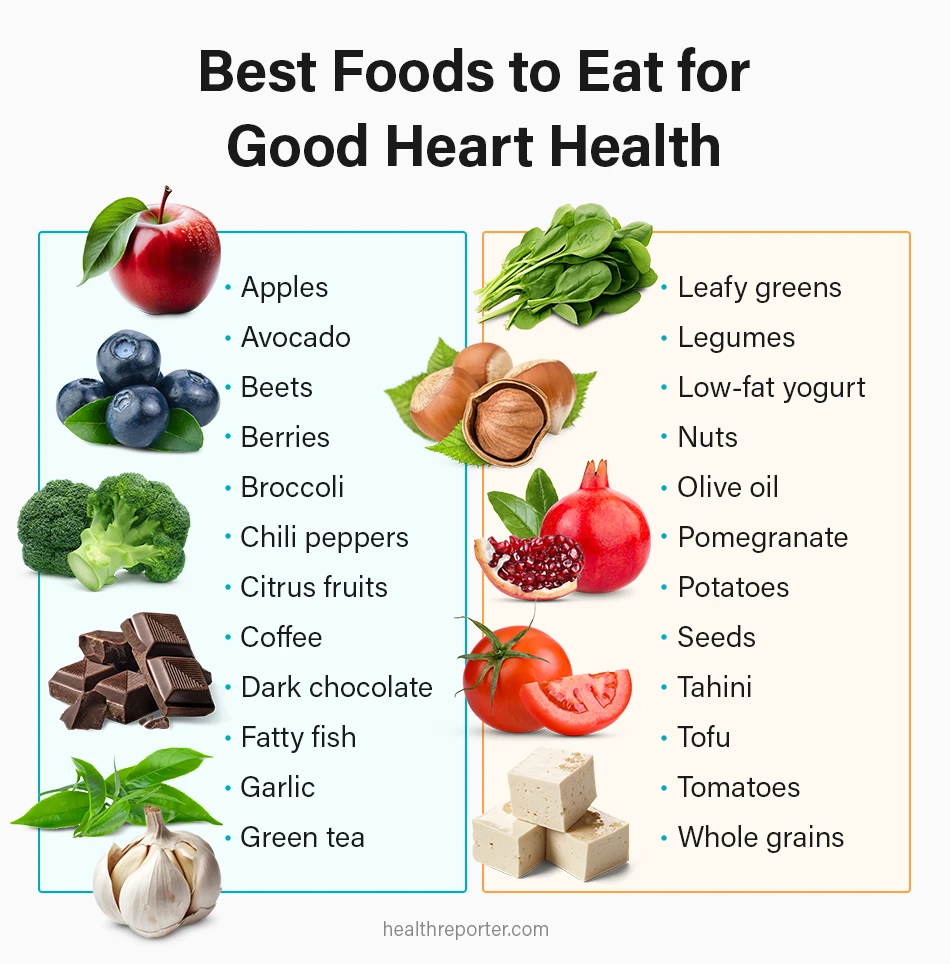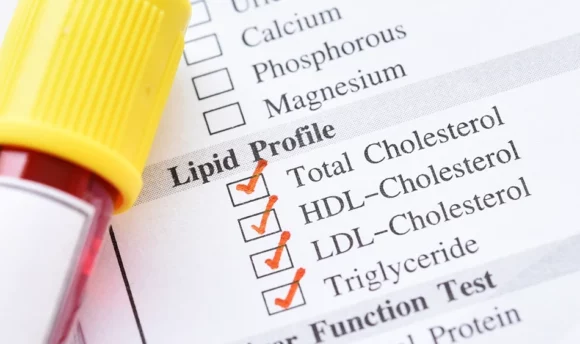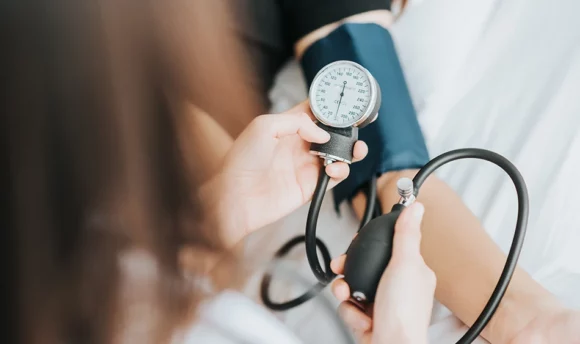25 Heart-Healthy Foods: The Ultimate Shopping List
Diet can have a huge impact on your cardiovascular health. Discover the best foods for your heart and what makes them provide cardiovascular protection.

Heart disease is one of the leading causes of death in the United States. But what you eat can make the difference between having a heart attack or developing coronary artery disease and staying healthy.
Diet is one of the most important risk factors for heart disease. An unhealthy diet high in saturated fat can lead to high blood pressure (hypertension), obesity, and diabetes. These are all contributing factors to heart disease.
Heart-healthy foods can both prevent and help manage heart disease. They can help keep your heart working at its best for years to come.
Learn why certain foods benefit heart health and which nutrient-rich foods to include in a heart-healthy diet.
What Are Heart-Healthy Foods?
Foods good for your heart are low in saturated fats. These cause plaque buildup in your arteries leading to hypertension and heart disease. They are low in sodium – high sodium intake can cause hypertension.
They are also not refined or processed. That means they don’t provide empty calories like soft drinks and canned fruit with added sugar. These readily available foods can lead to weight gain and diabetes, which are risk factors for heart disease.
At the same time, certain foods provide heart-healthy nutrients. These include:
- Fiber. Helps regulate blood sugar levels and bad cholesterol. High cholesterol can undermine heart health.
- Omega-3 fatty acids. Reduce triglyceride fats in the blood and the buildup of plaque. High triglycerides increase the risk of heart disease.
- Magnesium. This mineral may support a regular heart rhythm and regulate blood pressure.
- Vitamin B6. Helps your body absorb magnesium and use it more effectively.
- Vitamins B9 and B12. Alongside vitamin B6, they may help lower the risk of coronary heart disease.
- Potassium. Blunts the effects of sodium to regulate blood pressure. With the Western diet, it’s all too easy to eat too much sodium and not enough potassium.
- Vitamin K. Supports the health of arteries by reducing calcium deposits on artery walls.
- Vitamin D. May lead to a lower risk of heart attacks and other major cardiovascular events.
Tip: To eat healthy, you need to take at least a quick look at food labels. Sometimes apparently healthy choices may have added sugar, high sodium, or unhealthy fat.
What’s the best diet for heart health?
A healthy diet for your heart is low in saturated fats and high in fiber. It’s mostly plant-based and provides healthy fats like monounsaturated fats and polyunsaturated fats. Also, it doesn’t spike blood sugar levels.
Boost your heart health with a diet that includes the following:
- Fruits and vegetables
- Whole grains
- Nuts
- Olive oil
- Seeds
- Tofu
- Dark chocolate
- Green tea
- Low-fat yogurt
- Fatty fish
It is also important to avoid unhealthy snacks, which are often high in saturated fat, sugar, and salt. These can cause spikes in blood sugar. When you reduce your salt intake, you have a lower risk of developing hypertension.
Lastly, you don’t want to drink alcohol often as it contributes to hypertension.
25 Best Foods for Heart Health
A heart-healthy diet doesn’t have to involve too many compromises. From fresh fruits and frozen vegetables to salmon and tuna, many delicious foods can help prevent cardiovascular disease.
Remember that a varied diet is important for good health. Try to eat as many of the foods on this list as possible, and vary your diet regularly.

#1 Apples
A medium-sized apple provides, on average, 4.8 grams of dietary fiber and is a source of potassium and vitamin B6. An apple is a great alternative to snacks that are high in saturated fat or added sugar.
A 2020 study suggests that eating an apple a day can lower cholesterol levels, blood pressure, and the risk of cardiovascular disease.
You can pair apples with peanut butter for a delicious and nutritious heart-healthy snack. Just spread peanut butter over apple slices, and you’re good.
Tip: Don’t peel your apples! Apple skins provide fiber and polyphenols, which may benefit heart health. But be sure to wash fruits and vegetables under running water to remove germs.
#2 Avocado
When it comes to healthy fats, monounsaturated fats need your attention. Research suggests these fats can lower cholesterol and the risk of heart disease.
Avocados are rich in monounsaturated fats and a good source of fiber and potassium. Eating at least 1 avocado a day may also increase good cholesterol (HDL cholesterol).
But remember that avocados are high in calories and have a high overall fat content. If you’re eating healthy fats from other sources, don’t overeat avocados.
Tip: For a healthy heart, add avocado to salads or blend it into guacamole or smoothies.
#3 Beets
Beets are a rich source of nitrates, which your body converts into nitric oxide. This is a molecule that dilates blood vessels. Studies show that beets can significantly lower blood pressure.
What’s more, beets may reduce C-reactive protein levels and other markers of inflammation. By doing so, they may protect against heart disease, which has been linked to chronic inflammation.
To enjoy the protective benefits of this vegetable, blend it into smoothies or juice it. Drink a glass of beetroot juice daily (250ml) for at least 2 weeks.
Tip: Blend beets with fresh apple juice and frozen strawberries for a delicious drink.
#4 Berries
Blueberries, blackberries, and strawberries are some of the healthiest fruits you can eat for your heart. They have powerful antioxidants that protect cells against oxidative damage and inflammation responsible for heart disease.
Research indicates that eating blueberries daily can help control blood clotting and blood pressure. Blueberries help the endothelial cells that line blood vessels function better.
Tip: Aim to eat a cup of blueberries every day. In addition to snacking on berries, you can add them to oatmeal or blend them into smoothies.
#5 Broccoli
It may not be everyone’s favorite vegetable, but it’s certainly good for your heart. Broccoli has the antioxidant glucoraphanin, which has been linked to lower bad cholesterol and blood sugar levels.
Other antioxidants in broccoli may reduce the risk of heart attack. What’s more, broccoli is also a good source of fiber and vitamin C, which support overall health.
Broccoli is a great side dish alongside a heart-healthy whole grain like brown rice or quinoa. Aim for a serving of 100 grams of broccoli or larger.
Tip: Preserve broccoli’s nutritional value by steaming it for a few minutes instead of boiling or frying it.
#6 Chili peppers
The compound that makes chili peppers hot also happens to be very healthy for your health. It’s called capsaicin, and it may reduce inflammation and the risk of heart disease.
An analysis of several international studies found that people who ate chili peppers regularly had a 26% reduced risk of dying from cardiovascular disease.
To enjoy the potential health benefits of chili peppers, eat them at least 4 times a week. You can also consume them dried as a spice in stir-fries, soups, and other dishes.
Tip: Capsaicin occurs mostly in the inner membrane holding the seeds, so think twice before discarding it.
#7 Citrus fruits
Here’s yet another excuse to eat oranges, grapefruit, mandarins, limes, or pomelos. These citrus fruits have flavonoids, a type of antioxidant, and soluble fiber that lower bad cholesterol and triglycerides. At the same time, citrus fruits can improve good HDL cholesterol.
A Japanese study found that a high, frequent intake of citrus fruits leads to a reduced risk of cardiovascular disease, stroke, and cerebral infarction.
Tip: We don’t know how many citrus fruits you need to eat to stay healthy. But consuming them almost daily is likely to help.
#8 Coffee
Drinking 2–3 cups of coffee a day may lower your risk of cardiovascular disease and early death. This was the conclusion of a study involving 450,000 healthy adults with no history of cardiovascular disease.
However, it’s important to note that another recent study found that people with high hypertension (above 160/100mmHg) who drank 2 or more cups of coffee a day had a double risk of dying from cardiovascular disease.
The bottom line is to avoid coffee if you have hypertension or heart disease. Otherwise, don’t drink more than 3 cups a day.
#9 Dark chocolate
Dark chocolate has more cocoa and less added sugar than milk chocolate. It’s rich in flavonoids, which may protect your heart.
Findings from a 2017 study suggest that eating 3 servings (30 grams each) of dark chocolate a week could decrease the risk of coronary artery disease and stroke. It may also lower the risk of diabetes.
Tip: Check food labels to ensure the dark chocolate you buy has at least 70% cocoa content.
#10 Fatty fish
Regular, long-term consumption of salmon, tuna, and sardines has been linked to lower cholesterol and triglycerides and reduced blood pressure. Quite simply, this type of fish is one of the best foods to lower cholesterol. Some of these benefits occurred with weekly consumption of at least 300 grams of fish.
Fatty fish is a rich source of highly bioavailable omega-3 fatty acids. These may lower the risk of heart disease and arrhythmias.
Tip: Are you vegetarian or vegan? Try an omega-3 algae oil supplement instead.
#11 Garlic
Love it or hate it, garlic has allicin, a powerful compound that, in extract form, has been shown to reduce blood pressure. This occurred when patients took daily doses between 600 and 1,500mg for 6 months.
Other studies suggest garlic can reduce the risk of harmful blood clots and lower cholesterol. Garlic is more powerful in extract form, but eating it regularly may also support heart health.
Tip: Crush raw garlic into salads and other dishes – cooking garlic may deactivate the allicin in it.
#12 Green tea
Considered by some to be the world’s healthiest beverage, green tea contains catechins and polyphenols. These are powerful antioxidants that may help lower blood pressure and protect endothelial cells in arteries from fat deposits.
Taking a green tea extract can also be good for your heart. Research suggests that taking around 380 milligrams of green tea extract daily for 3 months can reduce blood pressure and improve cholesterol levels.
Tip: Drinking up to 5 cups of green tea a day may support overall health, provided you don’t have high blood pressure. If you have high blood pressure, talk to your doctor about how much green tea you can drink.
#13 Leafy greens
Kale, spinach, Swiss chard, and other leafy green vegetables are potent sources of antioxidants, minerals, nitrates, and vitamin K. Eating leafy greens frequently could reduce the risk of heart disease.
Another study found that women who had a high intake of leafy greens were less likely to develop coronary artery disease.
There are no hard and fast rules about how many leafy greens to eat for better heart health. Aim for about 2 cups per day.
Choose fresh or frozen greens over canned vegetables, which may have added salt.
Tip: Steam spinach instead of boiling to preserve nutrients.
#14 Legumes
Legumes like black beans, lentils, chickpeas, and edamame are more than a reliable source of plant protein.
Black beans, for example, have starch that promotes gut health and may lower cholesterol levels. Chickpeas and lentils, meanwhile, are loaded with healthy fiber. No surprise, then, that regular legume consumption has been associated with a reduced risk of cardiovascular disease.
Tip: Soak legumes overnight before cooking to prevent intestinal discomfort and improve nutrient absorption.
#15 Low-fat yogurt
A review of multiple studies suggests that yogurt can be good for your heart. Why this occurs is unclear, but yogurt may contain unique fatty acids, minerals, and calcium that promote cardiovascular health.
Yogurt has less saturated fat than other dairy products. Low-fat yogurt, which typically has 2% fat, is a particularly safe option. You can also try other low-fat dairy products like kefir or cheese.
Tip: Add berries and nuts to yogurt for a delicious and heart-healthy breakfast or snack.
#16 Nuts
Walnuts, almonds, pecans, hazelnuts, and macadamia nuts are some of the most heart-friendly snacks around. Nuts have high amounts of healthy fat, particularly monounsaturated and polyunsaturated fats.
They have phytosterols, which may lower cholesterol, and L-arginine, which may improve blood vessel health and lower blood pressure. They also provide omega-3 fatty acids and fiber.
Regularly eating nuts may decrease your risk of heart disease. Walnuts and almonds seem to be especially beneficial for cardiovascular health.
Tip: The Heart Foundation recommends eating 3–4 small handfuls of nuts per week.
#17 Olive oil
The fatty acids, antioxidants, and monounsaturated fats in olive oil can reduce inflammation and decrease the risk of chronic heart disease.
In one controlled study, a high intake of this oil was associated with a 48% lower risk of death from heart disease.
The best olive oil for heart health is cold-pressed extra virgin olive oil. Drizzle it over salads and add it to sauces, dips, whole-grain pasta, and soup.
Tip: Organic virgin canola oil is also good for your heart. It has even less saturated fat.
#18 Pomegranate
Pomegranate may not be the easiest fruit to eat. But it’s certainly good for your heart. Studies show that antioxidants in pomegranates can reduce the effect of atherosclerosis and the risk of heart disease.
In addition, pomegranates may decrease blood pressure and improve good cholesterol. So it’s a good idea to add pomegranates – and their healthy seeds – to your daily fruit portion.
Tip: Increase your pomegranate intake by blending the seeds into smoothies.
#19 Potatoes
Potatoes don’t always have a good reputation (especially when they’re fried). But boiled or steamed potatoes are rich in potassium, which can lower blood pressure. Potatoes are also a good source of fiber.
Sweet potatoes also have plenty of sodium, so you can add them to the menu too. Eat them with tofu and veggies like broccoli for a heart-healthy meal.
Tip: Don’t forget to sprinkle some olive oil over your potatoes.
#20 Seeds
Flaxseed, chia seeds, and hemp contain fiber and nutrients that can help keep your cardiovascular system healthy.
Eating 30 grams of ground flaxseed per day may help control blood pressure and cholesterol. It may reduce the risk of cardiovascular disease and other chronic conditions.
Meanwhile, hemp seeds may reduce inflammation through their arginine content, while chia seeds may improve beneficial HDL cholesterol.
Tip: Add a spoonful or 2 of mixed seeds to porridge, salads, or even soups.
#21 Tahini
If you’ve never tried it, tahini is a paste made from hulled and toasted sesame seeds blended with olive oil. A moderate-sized serving a day can be good for your heart.
Sesame seeds have lignans, antioxidants that could protect your body from heart disease caused by free radicals. They’re also rich in heart-healthy fats like monounsaturated fats.
Tip: You can make tahini at home. Just toast two cups of hulled sesame seeds in a dry pan and blend with extra-virgin olive oil.
#22 Tofu
Tofu is a nutrient-dense food made from condensed soy milk. Soy protein can reduce the risk of heart disease, and tofu is one of the best sources of it. Tofu has isoflavones, a type of antioxidant that protects cells from oxidative damage and supports the heart.
Tofu may also lower cholesterol and has fiber that aids digestion. And since tofu is packed with protein, it’s a great alternative to animal-based protein sources.
Tip: Eat at least one serving of 80 grams of tofu per week to lower your risk of heart disease.
#23 Tomatoes
What makes tomatoes red? Lycopene – a carotenoid with many potential health benefits, including a lower heart disease risk.
Researchers have associated low lycopene serum levels with an increased risk of heart attack. Eating tomatoes and tomato sauce could improve blood pressure, arterial health, and good cholesterol.
Studies suggest that eating 8 tomatoes weekly can improve cholesterol.
Tip: Steaming or boiling tomatoes increases their lycopene content.
#24 Whole grains
Whole grains like whole wheat, brown rice, oats, buckwheat, and quinoa contain all the nutrient-rich parts of the grain. Unlike refined carbohydrates, which can increase the risk of heart disease, whole grains protect your cardiovascular system.
Aim to eat 3 servings of whole grains or more daily, which can lead to a 22% lower risk of heart disease. Opt for whole-grain bread over white bread.
Oatmeal can be a convenient way to add more whole grains to your diet. The best part is that you can flavor it with other heart-healthy foods like berries, nuts, and seeds.
#25 Cherries
A cup of cherries provides a good source of sodium and has plenty of phytosterols. As we’ve seen, these plant compounds support heart health. Also, antioxidants in cherries may protect against heart disease.
What’s more, cherries can contribute to your overall intake of polyphenols. Over time, this can lower the risk of heart disease.
Sweet or sour, fresh or frozen, cherries are great for your heart. Eat a cup daily or as often as you can.
FAQs
A healthy diet for your health is rich in fruits and vegetables, whole grains, legumes, nuts, seeds, and olive oil.
Potassium-rich foods like beans, lentils, potatoes, and broccoli could lower heart rate by balancing sodium levels.
Snacks that can support heart health include fresh fruit, nuts and seeds, baked kale chips, and low-fat yogurt.
A Word From a Nutritionist
With a heart-healthy diet, you can keep your heart working at its best for years to come. But it isn’t only a question of eating the right foods. Just as important is to cut down on foods known to harm your heart.
Replace refined carbs with whole-grain foods and saturated fat with monounsaturated and polyunsaturated fats to lower LDL cholesterol levels. Add more omega-3 fatty acids to your heart-healthy diet and eat potassium-rich foods to balance high sodium levels.
Instead of processed meats and snacks, opt for nuts and seeds and fresh fruit. And, of course, it goes without saying that you can eat as many vegetables as you can.
You also want to drink less alcohol since alcohol can affect your heart rate. Beetroot juice, citrus juices, and fruit smoothies are heart-healthy alternatives that taste great.
Following a personalized nutrition plan can make everything easier. And the best part is that you can get it straight on your phone while also monitoring your blood pressure.
This is where blood pressure apps and nutrition apps can prove useful companions in your journey to better health.
For example, Cardi Health helps you monitor your heart health and provides personalized activity plans and nutrition. Learn more in our Cardi Health review.
Conclusion
Before you go shopping, here are the key things to remember to tap into the heart-healthy benefits of food:
- Focus on foods rich in fiber, omega-3 fatty acids, magnesium, potassium, antioxidants, vitamin D, vitamin K, and vitamins B6, B9, and B12.
- You don’t have to give up on treats – dark chocolate, berries, cherries, and fruits are good for your health.
- Fruits and vegetables are good sources of plant-based fiber.
- Choose whole-grain options over refined carbs and fatty fish over pork, beef, and lean meats.
- Try a vegetarian diet rich in legumes and plant-based protein like tofu and tahini.
- Skip coffee if you have hypertension – but enjoy it in moderation if you don’t.
- Beetroot juice and green tea are some of the healthiest things you can drink.
In the end, heart-healthy eating doesn’t have to mean making compromises. There are plenty of delicious foods out there you can choose from.

















































 Select your language:
Select your language: 









